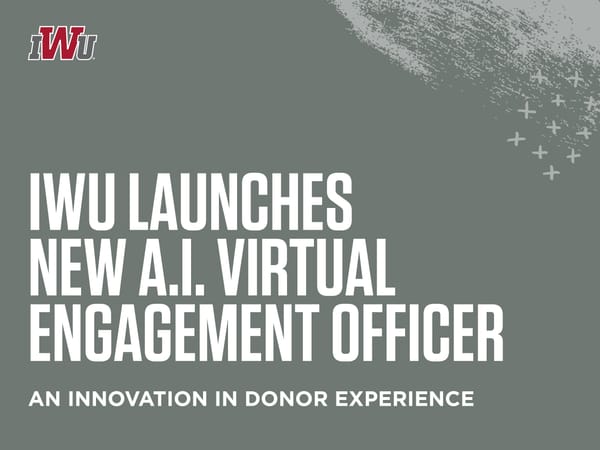The Role of Technology in Modern Nursing: From Telehealth to AI

It's no secret that nursing is a dynamic field. As further research is carried out and new innovations emerge, nurses can leverage the latest data and technology to optimize patient care.
However, in recent years, we've witnessed a digital transformation in healthcare with incredible innovations in patient care technology, healthcare automation, and even robotics in nursing. Whether you're thinking about going into nursing as a profession or are already working in the field, being aware of the latest technologies and digital health solutions will be paramount to your own professional growth.
The Impact of Telehealth on Nursing
In recent years, the use of telehealth has grown exponentially. Today, many people rely on telehealth as a viable means of receiving prompt healthcare without having to visit a clinic or physician's office.
What Is Telehealth and How Has It Grown?
Specifically, telehealth refers to a method through which patients receive healthcare remotely, usually in the form of a synchronous video chat or phone call with a doctor/nurse. Telehealth has been around for many years, but it became especially popular during the COVID-19 pandemic, when many people were hesitant to sit in clinic waiting rooms and preferred to receive healthcare in the safety of their own homes. In fact, a 2021 CDC study found that 37% of American adults used some form of telemedicine during a 12-month period.
Telehealth and Patient Care
Telehealth has become a convenient option for patients to receive basic care without having to leave their homes. Depending on the specific technology available, telehealth appointments can be used for anything from diagnosing a basic injury/ailment to providing health education, health management, and even remote monitoring in healthcare. Meanwhile, the convenience and time-saving nature of telehealth appointments can enhance the patient experience.
Artificial Intelligence (AI) in Nursing
With recent advancements in artificial intelligence (AI), you'd be hard-pressed to find an industry that hasn't been affected in some way by this technology. In nursing specifically, there are numerous ways in which AI is being used to improve patients outcomes and save nurses time.
AI Applications in Healthcare
Already, AI is being used in healthcare to:
- Provide evidence- and data-based recommendations to healthcare providers.
- Streamline some administrative tasks, such as billing and scheduling appointments.
- Detecting diseases in patients earlier by using predictive analytics in healthcare.
- Improving diagnoses with image processing from MRI machines, X-rays, CT scanners, and more.
Enhancing Efficiency With AI
In addition to the potential for AI to aid in diagnosing medical issues and coming up with treatment plans, this technology can also be useful in improving efficiency within medical offices. For example, AI can be used to handle time-consuming tasks that were previously done manually, such as scheduling patient appointments or submitting claims to insurance companies. This frees up valuable time for administrators and healthcare workers to focus on other important aspects of their jobs.
Ethical Considerations of AI in Nursing
Because AI is still relatively new technology in nursing, there are some lingering concerns over the ethical use of artificial intelligence in the field. This is especially true as it relates to the security of patient data, patient data management, and the potential for bias in AI algorithms. To address some of these concerns, the American Nurses Association (ANA) has published a position statement on the ethical use of AI in nursing, citing several important recommendations for nurses to follow.
Wearable Health Technology and Remote Monitoring
Today, more healthcare facilities are also relying on different forms of wearable health technology and remote monitoring systems to keep an eye on patients' vital signs and other important health information from afar.
Role of Wearable Devices in Nursing
Wearable devices make it easier for patients to be monitored without having to be in the doctor's office or hospital for an extended period of time. The information collected from these wearable devices can help healthcare teams make changes to treatment plans as needed, ensuring that patients receive the best possible care.
Some examples of common wearable devices used in nursing include:
- Smartwatches to collect data on everything from pulse and body movements to sleep and oxygen saturation.
- ECG monitors to track heart activity.
- Blood pressure monitors.
- Glucose monitors, which may also sync with popular mobile health apps and digital health platforms to help patients see their glucose readings on-demand.
- Spirometers to measure respiratory rates.
Improving Chronic Disease Management
In addition to being used for continuous monitoring, wearable devices can also be effective in the management of chronic diseases. For instance, wearable devices may help patients follow treatment plans and medication regimens more closely. This can improve outcomes while reducing the risk of hospitalization or further complications related to the disease.
Robotics in Nursing
The use of robotics in healthcare might sound like something out of a science fiction movie, but the reality is that robotics is assisting nurses in a number of ways.
How Robotics Is Assisting Nurses
In recent years, the use of robotics in nursing schools has made it possible for nurses to experience realistic simulations, allowing them to practice important clinical skills in a safe setting. In addition to educational and training purposes, robots in healthcare facilities can aid in carrying out repetitive and manual tasks (such as retrieving medical supplies) to free up nurses' valuable time.
Human-Robot Collaboration in Healthcare
Of course, it is worth noting that robotics will never be a replacement for human nurses in healthcare. Although robots can aid in training, education, and carrying out some manual tasks, there will always be a demand for caring and compassionate nurses in healthcare.
Electronic Health Records (EHRs) and Data Management
Most hospitals and medical facilities no longer use paper charts and records. Instead, they have made the transition to electronic health records (EHRs) and robust data management systems, which can streamline documentation and better maintain patient information.
EHRs in Modern Nursing Practice
EHR systems maintain patient records, data, and other health information in one centralized location that can be accessed by any authorized user within the facility. This makes it possible for nurses to access the most up-to-date patient data at all times, which can improve their ability to provide quality care. EHR tools can also foster better communication among healthcare teams while utilizing nursing informatics to optimize patient care and outcomes.
Streamlining Nursing Documentation with EHRs
Electronic health records systems can also streamline the process of documenting patient/care details, from medications administered to diagnostic tests run. By being able to access and update information in real-time, nurses can spend less time dealing with health records and more one-on-one time with patients.
The Role of Technology in Patient Education and Engagement
There are many ways in which new healthcare technologies and digital health solutions can make nurses' jobs a bit easier. That said, there are also some notable benefits for patients, especially related to education and engagement.
Using Technology to Educate Patients
With access to more tech tools, healthcare teams can more readily reach and educate patients on the topics most important and relevant to their own health. For example, nurses and other care team members can easily share digital resources to help patients better understand diagnoses, treatment options, interventions, and more in a way that is accessible to patients.
Increasing Patient Engagement with Digital Tools
In the meantime, digital tools empower patients to take control of their own healthcare experiences in new ways. From the ability to seamlessly book an appointment online to self-check-in options and other resources, patients can be more involved in their own care than ever before.
The Future of Technology in Nursing
The past few years have been rather eventful when it comes to technology in healthcare and nursing—but what can we expect to see in the future?
Emerging Technologies on the Horizon
In the not-so-distant future, we could see even more advancements in healthcare automation, AI, patient data management, and just about every other aspect of healthcare imaginable. In one 2022 study on recent advancements and emerging technologies, researchers explore the potential use of sensors and Internet of Things (IoT) frameworks to improve patient diagnoses, treatments, and outcomes in the coming years.
Preparing Nurses for a Tech-Driven Future
Regardless of what the future may hold when it comes to healthcare technologies, nurses need to be prepared to adapt and leverage new innovations to their (and their patients') advantage. This means not just being open to learning about new technologies but committing to a lifetime of professional development and continuing education.
Learn More at Indiana Wesleyan University
From the increasing use of artificial intelligence in healthcare to remote patient monitoring, telehealth in nursing, and other healthcare technology innovations, the next generations of nurses have a lot to keep up with. At the same time, being able to leverage these technologies can improve everything from the quality of patient care and outcomes to patient damage management and even nurse productivity.
Looking for a nursing program that will prepare you for this dynamic and fast-paced field? Indiana Wesleyan University is proud to offer a bachelor's degree in nursing (BSN) and a pre-licensure nursing program that allows students with a bachelor's degree in another field to complete an accelerated nursing program in as little as 14 months.
Get in touch to learn more about our nursing programs, explore the other programs we have to offer, or start your online application today.
Sources
https://www.indwes.edu/find-your-program




